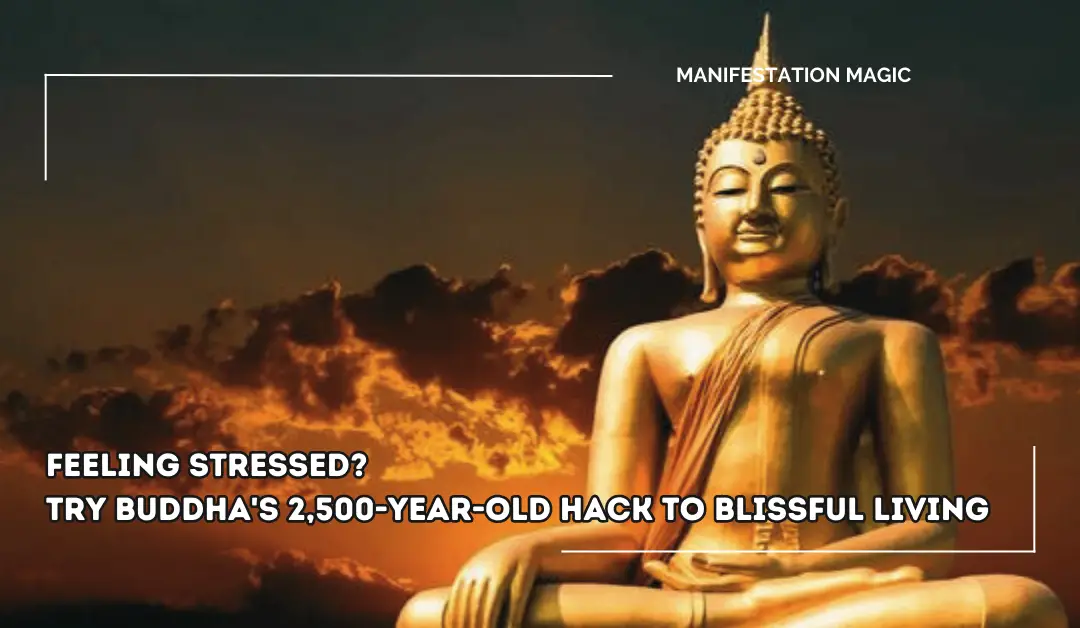“In the sky, there is no distinction of east and west; people create distinctions out of their own minds and then believe them to be true.” — Buddha.
As we observe Vesak Day, reflecting on the enlightenment of Buddha,
his teachings on the illusions of mental distinctions offer a compelling gateway into mindfulness.
This practice is about more than quieting the mind.
It’s about understanding our perceptions and learning to live beyond them, in the present moment where peace truly resides.
It may sound challenging… especially if your mind feels cluttered and chaotic…
if you’re too busy ruminating on the past or worrying about the future.
But practicing mindfulness in your daily life can do wonders for the mind.
Mindfulness is a gift from the teachings of Buddha,
emphasizing the importance of living in the present to achieve a clearer state of mind.
It’s about noticing the here and now—savoring the texture of a leaf,
the warmth of the sun, the complexity of our emotions—without judgment.
Imagine feeling truly at peace and grounded, able to fully appreciate the beauty of the present moment.
It’s a mental state that’s truly worth striving for.
How to Practice Mindfulness Every Day?
Being mindful is the definition of mindfulness… being conscious and present.
We are so accustomed to being distracted and multitasking constantly
that it does take some effort to go back to that natural state.
But the effort I’m referring to doesn’t need much from you.
It just requires that you remember to recognize when you’ve become sidetracked.
You may start doing that in your meditation routine by becoming conscious of when you start to daydream,
catching yourself, and coming back to your breathing.
You use the same method in your daily life.
Simply remember to remain in the present moment when doing anything,
including eating, strolling, cleaning, having a shower, opening a door, going for a run, or brushing your teeth.
You bring awareness to the task or activity before you.
Let’s look at eating a piece of fruit as an example.
Imagine you are eating an apple.
You’ll be able to keep your awareness throughout because it won’t take more than a few minutes.
You will concentrate on the process of biting and chewing an apple
rather than thinking about a myriad of other things while doing so.
After you train your mind to concentrate on that,
you’ll begin to feel a little more at ease.
That sense of direct focus is what grounds and calms the mind.
When was the last time you ever noticed how you bite and chew?
Take your time and really experience what it is like to eat an apple.
When was the last time you ate an apple and got the full flavor?
Try to teach your mind to be conscious of how you swallow and to follow the action
or sensation from your mouth to your stomach.
If you notice your mind has wandered and you’ve drifted into thought during this time, that’s fine.
Perhaps you got bored or started analyzing the way you chew,
maybe it made you think about your teeth and you got totally sidetracked.
None of that matters right now, these observations are still useful,
as they teach you about your mind as it really is.
The result?
As you begin to apply this mindfulness approach to daily activities,
you will find it calming and soothing effects on your mind.
It makes you feel very present and incredibly calming.
When you feel calm, you experience greater clarity.
You will start to see how, and why you think, and feel the way you tend to.
The unique patterns, habits, and tendencies of the way your mind works will begin to make sense to you.
And the result of all of this?
The ability to gain control and choose how you decide to live your life.
It will make you suddenly acutely aware of how much power you have to direct your thoughts and emotions,
responding to how you choose instead of feeling overwhelmed.
In short, it gives you sovereignty back over your own mind and your life.
Practicing mindfulness can completely turn around your relationships too.
Most people think they are being present in the conversations and interactions they have…
But the majority of us are thinking about the next thing,
wondering about what we are going to say and not truly listening and communicating 100% mindfully.
When you practice mindful listening and mindful talking, you really feel a sense of connection.
You are giving someone your full and undivided attention.
What an incredible gift.
Mindfulness will help you to feel empowered to live your life on purpose again.
I suggest combining mindfulness and meditation since they are complementary to one another.
You can educate your brain to be mindful of the moment right now by meditating.
Mindfulness is exactly this.
You start to utilize that emotion more and more throughout the day
and can much more easily apply it to other areas of your life as it gets more and more familiar to you.
In other words, practicing meditation is the greatest way to gain mindfulness skills.
You may change how you interact with your own mind by practicing mindfulness.
It represents a significant shift in how you see and handle your ideas and emotions.
Repetition is the finest method for success.
Regular meditation practice helps you develop a steady sense of present-moment awareness
and makes it easier for you to respond naturally in daily situations.
Do you see how they are related to one another?
You benefit from each exercise in the other.
It’s crucial to continue practicing mindfulness and meditation even when you don’t feel like it.
Like with any talent, the more you practice it, the more confident and competent you become.
Doing this will lead you to the brighter life you deserve.
As Buddha suggested, our lives unfold in a series of present moments.
Each moment is an opportunity to practice mindfulness,
which can lead to a more serene and satisfying life.
How about giving meditation and mindfulness a try today?
I’d love to hear about your experiences or any thoughts you might have.
Please share in the comments below!

